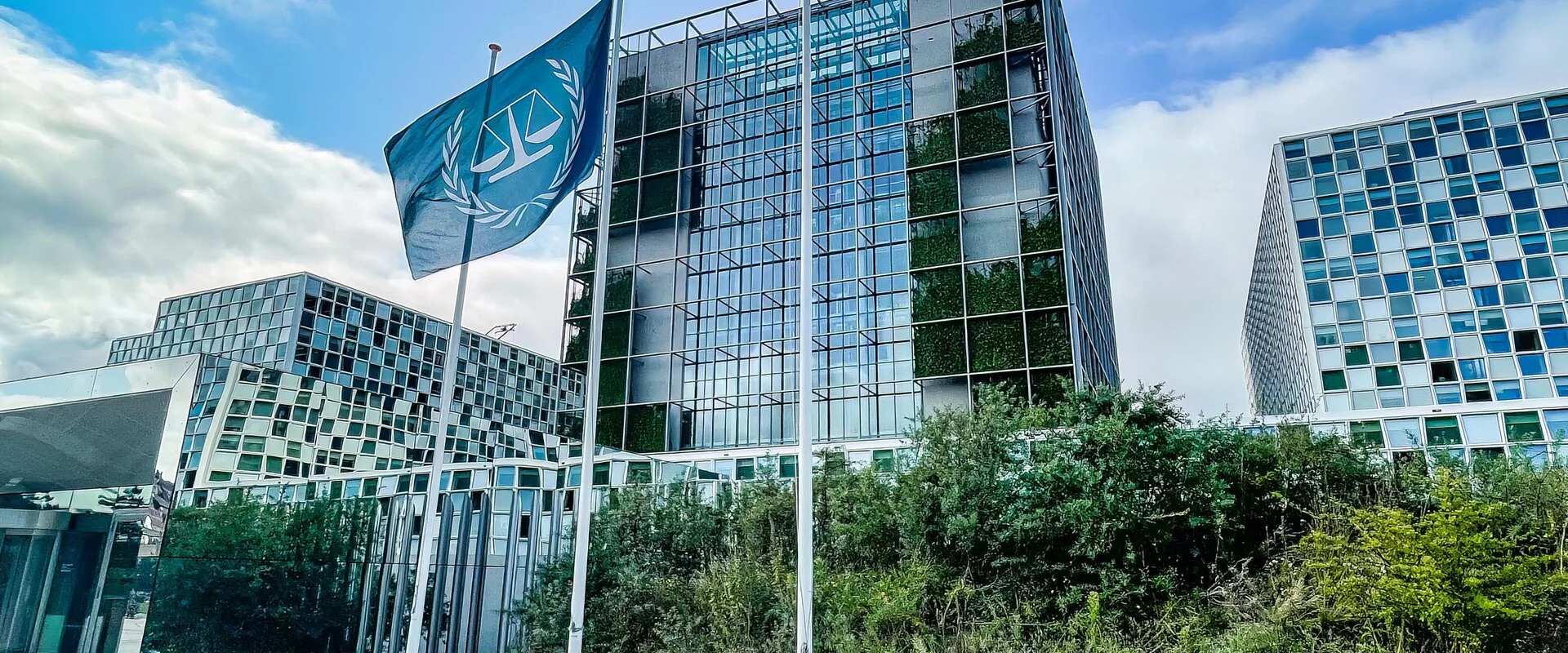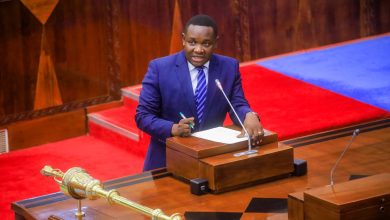When justice becomes a weapon: Tanzania and the politics of the ICC

AFRICA: For decades, the International Criminal Court (ICC) has positioned itself as the global arbiter of justice. But in much of Africa, it is increasingly seen less as a neutral institution and more as a tool wielded against leaders pursuing national interests that conflict with Western agendas. Today, as donor governments subtly signal displeasure with Tanzania, analysts warn the country could be the next target in a pattern of selective accountability that has already ensnared several African states.
African skepticism toward the ICC did not emerge in a vacuum. By 2017, frustration within the continent had reached a breaking point, prompting the African Union Assembly of Heads of State in Addis Ababa to adopt what became known as the ICC Withdrawal Strategy, arguing that the Court displayed “disproportionate focus on African situations” while ignoring powerful states and close Western allies. That year’s AU report stated that the ICC had “strayed from its founding values and now operates in a manner that undermines African sovereignty.”
The criticism has not softened with time. When Israeli military operations in Gaza intensified, causing widespread civilian casualties and sparking international condemnation, African leaders questioned why the same urgency applied to charging African presidents was absent. As one West African diplomat told a regional forum in 2024: “When Palestinians die, there is silence. When Africa asserts sovereignty, the Court wakes up.”
The selective application of justice remains the central critique. The United States, China, Russia, and Israel are not ICC members — yet exert immense influence on global politics. Meanwhile, African presidents, ministers, and military officers account for the overwhelming majority of individuals indicted by the Court.
Kenyan political scientist Dr. Patrick Lumumba once captured the sentiment sharply: “The ICC is becoming the tool with which global powers discipline disobedient African leaders.”
Against this backdrop, Tanzania is entering an increasingly tense moment. The country’s assertive control over natural resources, tighter scrutiny of foreign-funded NGOs, and insistence on shaping its own development trajectory have generated unease among some Western governments. Over the past year, these tensions have shown up subtly — sudden freezes of development assistance, sharp shifts in donor rhetoric, and strong statements channeled through diplomatic missions and advocacy networks.
Some Tanzanian analysts argue that these moves mimic familiar patterns in other African states: pressure begins not with formal charges, but with financial punishment, narratives of “governance concern,” and amplified activism fueled by external funding. A senior regional security researcher, speaking anonymously, put it bluntly: “First they freeze funds. Then they orchestrate noise. Then they call for investigations. The target is never the issue — it is influence.”
The claim that Western-backed activists can destabilize political environments is not new. In several countries, including Kenya, Ethiopia, and Sudan, governments have accused foreign-funded organizations of supporting confrontational protests, influencing public opinion, or shaping international perceptions to justify external intervention. Whether these accusations are accepted or disputed, they reflect a larger concern: that external actors increasingly shape domestic political narratives.
ALSO READ: ICC seeks sentences for Sudanese warlords
In Tanzania’s case, allegations that some groups received foreign funding in the period leading up to the recent unrest have intensified scrutiny. While Western missions deny any involvement, officials in Dar es Salaam argue that the pattern resembles earlier episodes in which African states were pushed toward crisis and then blamed for the consequences.
The fear — expressed privately by security analysts and quietly by some government officials — is that Tanzania could be placed on a trajectory that ends with international legal action. Already, some European voices have begun referencing “potential rights violations” and “need for accountability.” The sequence, critics warn, is predictable.
Former African Union Commissioner Nkosazana Dlamini-Zuma, who helped spearhead the 2017 AU position, warned then that “no African leader is safe when justice becomes selective and political.” Her caution is resurfacing today as continental observers fear that Tanzania could soon face politically motivated pressure disguised as legal oversight.
If the perception continues that the ICC is being used as a geopolitical lever, the question becomes unavoidable: Should Tanzania consider withdrawing from the ICC?
Several African countries — including Burundi and South Africa (although Pretoria’s withdrawal was later reversed in court) — have already initiated exit processes. Rwanda, Ethiopia, Eritrea, and others have never joined, insisting the Court’s power is susceptible to geopolitical manipulation. The AU’s 2017 Withdrawal Strategy remains an existing framework that Tanzania could invoke, providing legal, diplomatic and procedural guidelines for a coordinated continental disengagement.
Proponents of withdrawal argue that sovereignty must be safeguarded. They point to the AU Panel of Eminent African Jurists, which observed that “international justice cannot be credible when it mirrors global power asymmetries.”
Supporters believe that as long as the ICC avoids action against powerful states, the Court cannot claim neutrality.
Opponents caution that withdrawal may expose civilians to abuses or weaken accountability systems. Yet even these critics acknowledge that the Court must reform if it hopes to regain African trust.
For many African scholars, the issue is not justice itself but who wields it, when, and for whom. The ICC’s legitimacy crisis deepens each time Western governments ignore investigations involving their allies while pushing aggressively for probes in states that challenge their interests. As one East African columnist put it: “If Palestine cannot find justice at The Hague, why should Africans believe they will?”
Tanzania now stands at a crossroads. It can remain in the ICC and risk becoming entangled in politicized legal battles, or it can revisit the AU’s 2017 proposal and seek a regional alternative grounded in African institutions. Either way, the era of unquestioned global legal authority is ending.
What emerges next will determine whether justice becomes a universal principle — or continues to function as a weapon in the hands of the powerful.






The Russian army also lost 11,366 (+3) tanks, 23,620 (+5) armored combat vehicles, 34,626 (+41) artillery systems, 1,549 (+0) multiple launch rocket systems, 1,248 (+0) air defense systems, aircraft – 428 (+0), helicopters – 347 (+0), UCAVs – 83,769 (+431), cruise missiles – 3,981 (+0), ships/boats – 28 (+0), submarines – 1 (+0), vehicles and tankers – 68,006 (+84), special equipment – 4,003 (+0).
The Russian army also lost 11,366 (+3) tanks, 23,620 (+5) armored combat vehicles, 34,626 (+41) artillery systems, 1,549 (+0) multiple launch rocket systems, 1,248 (+0) air defense systems, aircraft – 428 (+0), helicopters – 347 (+0), UCAVs – 83,769 (+431), cruise missiles – 3,981 (+0), ships/boats – 28 (+0), submarines – 1 (+0), vehicles and tankers – 68,006 (+84), special equipment – 4,003 (+0).
The Russian army also lost 11,366 (+3) tanks, 23,620 (+5) armored combat vehicles, 34,626 (+41) artillery systems, 1,549 (+0) multiple launch rocket systems, 1,248 (+0) air defense systems, aircraft – 428 (+0), helicopters – 347 (+0), UCAVs – 83,769 (+431), cruise missiles – 3,981 (+0), ships/boats – 28 (+0), submarines – 1 (+0), vehicles and tankers – 68,006 (+84), special equipment – 4,003 (+0).